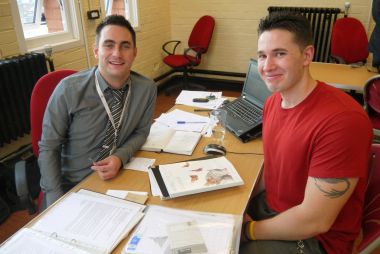Christian organisations refuse voluntary placements for Government's Help to Work scheme

The Salvation Army is among the Christian organisations that have declined to offer voluntary placements as part of a new employment programme being launched by the Government today.
The new programme, entitled 'Help to Work', specifically targets those who have been on the previous Work Programme system for two years or more.
The new rules will require those who sign on for Job Seekers Allowance to either visit their Job Centre daily, enter some form of vocational training, or else take up what have been called 'Community Work Placements' – 26 week voluntary work schemes arranged through the Job Centre.
If people fail to meet any of these targets, their benefits will be suspended. A first failing could result in four weeks suspension of JSA payments, while a second failing could lead to 13 weeks of no payments.
A number of charities have expressed deep concern at the practice of forcing unemployed people into voluntary sector positions using the threat of benefit sanctions.
The YMCA in England has acknowledged the "benefits of work experience for helping people into employment" but refused to offer any voluntary places to the Community Work Placement scheme, because of "concerns about the length of time involved".
The Salvation Army has also declined to offer any voluntary posts in their organisation, saying: "We feel that a 26-week work experience placement is too long and would not offer any more benefits than a short placement."
"If someone has not found employment within two years, the lack of work experience is clearly not their only barrier to employment," it continued.
"Our concern is that the underlying issues need to be dealt with holistically and work experience is a part of the support needed."
Daniel O'Driscoll, Oxfam's head of volunteering, explained why his organisation will not be taking part in the Help to Work programme: "These schemes involve forced volunteering, which is not only an oxymoron, but undermines people's belief in the enormous value of genuine voluntary work.
"These schemes impact unfairly on the support people receive, and so are incompatible with our goal of reducing poverty in the UK."
Church Action on Poverty raised concerns that the Help to Work programme would end up increasing the numbers in extreme poverty.
Niall Cooper, the director of CAP said to Christian Today: "Over the past year more than 800,000 people on Jobseekers Allowance have already being sanctioned – deprived of any income – for weeks or months at a time.
"Help to Work, by increasing the demands placed on jobseekers risks forcing vulnerable people into destitution."
Agreeing with Mr O'Driscoll, Mr Cooper said: "The Help to Work scheme involves compulsory unpaid work. It is an abuse of the English language to describe this as 'voluntary work'."
Government data on the success of schemes similar to the "Help to Work" programme have not been encouraging.
A pilot scheme involving more than 15,000 people reported that the use of Community Work Placements only improved the employment rate by between 2 to 4 per cent.
The pilot programme was only able to find voluntary placements for 63 per cent of those who took part.
The Work and Pensions Secretary, Iain Duncan Smith, said defended the programme to the BBC as an improvement from the previous system: "Everyone with the ability to work should be given the support and opportunity to do so.
"The previous system wrote too many people off, which was a huge waste of potential for those individuals as well as for their families and the country as a whole."











